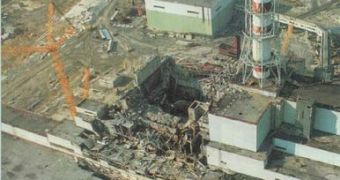Though nuclear power was at first viewed as a great source of alternative energy, in the last three decades many countries turned their back on it. Now under the threat of global warming, the nuclear industry seems to be in vogue again. Nuclear power produces great quantities of electric energy, without emitting significant quantities of greenhouse effect gases, in contrast with the power plants which burn fossil fuel to produce energy, responsible for about 35 percent of all the greenhouse effect gases dumped in the atmosphere by the U.S. every year.
In Europe, there are 173 nuclear reactors in operation. About 80 percent of all the electric energy in France is produced by nuclear power, a total of 59 nuclear power plants. In an ironical twist of events, the environmentalists, the same people that a few decades ago pleaded to stop producing energy with the help of the nuclear power plants, are now calling back for new nuclear reactors.
The organism that approves the building of new plants, Nuclear Regulatory Commission or NRC, got in September this year its first application for the building of a new nuclear power plant, in 30 years and it is said that about 20 more applications will be placed in the next months.
Most of the big countries in Europe now run at least one nuclear reactor, except for Italy, one of the pioneers of the nuclear technology, which closed all four nuclear reactors in the early 1990s, as a result of the disaster at Chernobyl. Now Italy is the biggest importer of electrical energy in the world, with about 10 percent of the imported energy being produced by nuclear power plants in the neighboring countries.
The International Atomic Energy Agency predicts that the current global nuclear capacity of about 370 gigawatts of electric energy will grow in the following decades by a rate of 20 to 80 percent. Nevertheless, Greenpeace activists believe that the answer to resolving the global warming problem is not nuclear energy, and even if it were it would be too late to reverse the effect of years of dumping high quantities of greenhouse gases in the atmosphere.
In the U.S. there has been a wide debate about the nuclear energy for decades, due to the accidents at Three Mile Island in 1979 and Chernobyl in 1986. The main concern however has now shifted from the threat of nuclear accidents, toward the problem of storing the depleted nuclear fuel.
The Unites States alone has over 50,000 tons of nuclear waste resulted by 'burning' nuclear fuel. Even so, the quantity represents only a fraction of the 2 billion tons of carbon dioxide dumped into the atmosphere as a result of burning fossil fuels. The U.S. alone is now responsible for more than a quarter of all the quantity of carbon dioxide emitted into Earth's atmosphere every year.
The future of nuclear power plants seems to be a much cleaner environment, with the creation of the fusion reactor. Unlike the nuclear reactor now exploited all over the world, fusion reactors work by combining atomic nuclei to produce energy, in a similar process to that taking place inside the Sun, thus eliminating all the nuclear waste associated with the classical nuclear fission reactors.
Even so, the nuclear fusion technology seems to be far from reality.
Though the electric energy produced by nuclear power costs less than 2 cents per kilowatt-hour, the price doesn't include the debts accumulated in the construction stage.

 14 DAY TRIAL //
14 DAY TRIAL //